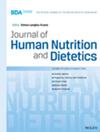The Impact of Home Enteral Tube-Feeding on the Intent and Experience of Going Out in Public: A Qualitative Study on Patients' and Caregivers' Perspectives
Abstract
Background
Individuals on tube-feeding experience significant lifestyle changes and social isolation, but the barriers and support for travelling out while on tube-feeding to reintegrate into the community have not been studied. This research explores the factors influencing the decisions of individuals on tube-feeding and their carers to travel outside of their homes, their experiences, and perceived barriers and support when performing tube-feeding in public settings.
Methods
A qualitative design using purposive sampling explored the experiences of three individuals and five carers living at home on long-term tube-feeding. One-to-one semi-structured interviews were conducted and transcribed. Thematic analysis was conducted via open coding and merging of recurring codes to form themes.
Results
Six themes emerged: (1) Motivators and deterrents to going out: Motivators include desire for social normalcy. Deterrents include physical health, logistics and psychosocial considerations, such as fear of negative public perception and the loss of travelling and dining as motivating social activities. (2) Going out requires meticulous preparation and planning. (3) Inadequate tube-feeding facilities in the community contribute to ambivalence and discomfort to tube-feeding outside. Participants must accept potential negative emotions when confronted with public reaction to tube-feeding. (4) Ideal tube-feeding facilities should be private and hygienic, in highly frequented locations. (5) Community support and awareness are needed to support tube-feeding. (6) Adaptability is crucial when satisfactory feeding locations are absent during local and overseas travel.
Conclusions
Carers and healthcare professionals are pivotal in encouraging patients to disregard public curiosity, planning tube-feeding logistics, and advocating for the right to tube feed in public spaces without shame. Public awareness, carer support, and availability of tube-feeding facilities should be improved for patients to live, work and engage meaningfully in the community.

 求助内容:
求助内容: 应助结果提醒方式:
应助结果提醒方式:


